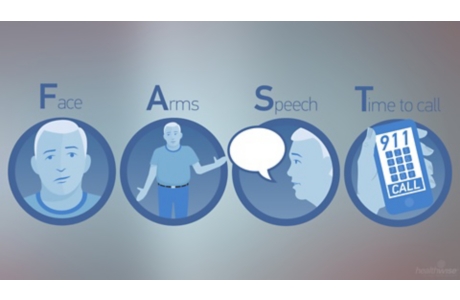Smoking: Heart Attack and Stroke Risks
Topic Overview
If you smoke, your chance of dying from a heart attack is 2 to 3 times greater than that of a person who does not smoke. About 1 out of 4 heart attacks is believed to be directly related to smoking. Smoking is a much more important risk factor for a heart attack than high cholesterol, obesity, high blood pressure, or stress. Exercise and a good diet cannot erase the risks to your heart caused by smoking.
Smoking even a few cigarettes a day (1 to 4) increases your risk of coronary artery disease. If a person who smokes has a heart attack, his or her risk of sudden death is twice as great as the risk of a person who does not smoke.footnote 1
After you quit:
- Your risk of having a heart attack is cut in half 2 years after you quit smoking. And 15 years after you quit, your risk of a heart attack is similar to that of a person who never smoked.
- Even if you have already had a heart attack, quitting smoking will reduce your risk of having a second one.
- Even if you gain weight when you quit, your risk of heart attack decreases.
How soon you quit matters. People who quit smoking before age 50 reduce by half their risk of dying in the next 15 years compared with continuing smokers. But if you quit smoking before age 35, almost all of the risks from smoking can be reversed.
If you already have coronary artery disease, your risk of a second heart attack and possible sudden death decreases when you quit smoking.
A person who smokes is twice as likely to die from a stroke as a person who does not smoke. After you quit, your risk of stroke slowly goes down over time.
References
Citations
- National Guideline Clearinghouse (2001, revised 2013). Guideline synthesis: Treatment of tobacco dependence. Available online: http://www.guideline.gov/syntheses/synthesis.aspx?id=43817.
Credits
Current as ofSeptember 26, 2018
Author: Healthwise Staff
Medical Review: Adam Husney MD – Family Medicine
Elizabeth T. Russo MD – Internal Medicine
Kathleen Romito MD – Family Medicine
Michael F. Bierer MD – Internal Medicine, Addiction Medicine
Current as of: September 26, 2018
Author: Healthwise Staff
Medical Review:Adam Husney MD – Family Medicine & Elizabeth T. Russo MD – Internal Medicine & Kathleen Romito MD – Family Medicine & Michael F. Bierer MD – Internal Medicine, Addiction Medicine
National Guideline Clearinghouse (2001, revised 2013). Guideline synthesis: Treatment of tobacco dependence. Available online: http://www.guideline.gov/syntheses/synthesis.aspx?id=43817.




